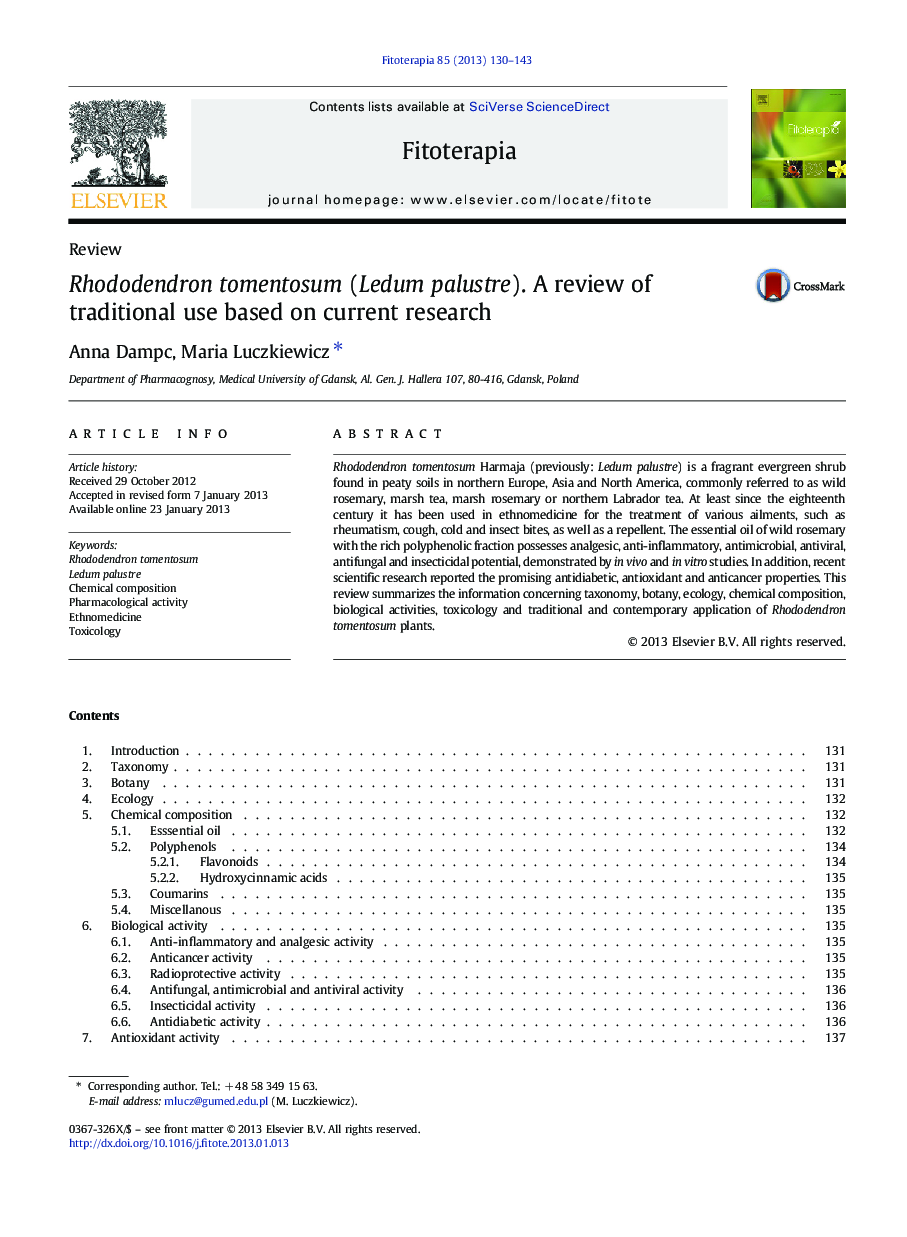| Article ID | Journal | Published Year | Pages | File Type |
|---|---|---|---|---|
| 2538898 | Fitoterapia | 2013 | 14 Pages |
Rhododendron tomentosum Harmaja (previously: Ledum palustre) is a fragrant evergreen shrub found in peaty soils in northern Europe, Asia and North America, commonly referred to as wild rosemary, marsh tea, marsh rosemary or northern Labrador tea. At least since the eighteenth century it has been used in ethnomedicine for the treatment of various ailments, such as rheumatism, cough, cold and insect bites, as well as a repellent. The essential oil of wild rosemary with the rich polyphenolic fraction possesses analgesic, anti-inflammatory, antimicrobial, antiviral, antifungal and insecticidal potential, demonstrated by in vivo and in vitro studies. In addition, recent scientific research reported the promising antidiabetic, antioxidant and anticancer properties. This review summarizes the information concerning taxonomy, botany, ecology, chemical composition, biological activities, toxicology and traditional and contemporary application of Rhododendron tomentosum plants.
Graphical abstractFigure optionsDownload full-size imageDownload high-quality image (435 K)Download as PowerPoint slide
